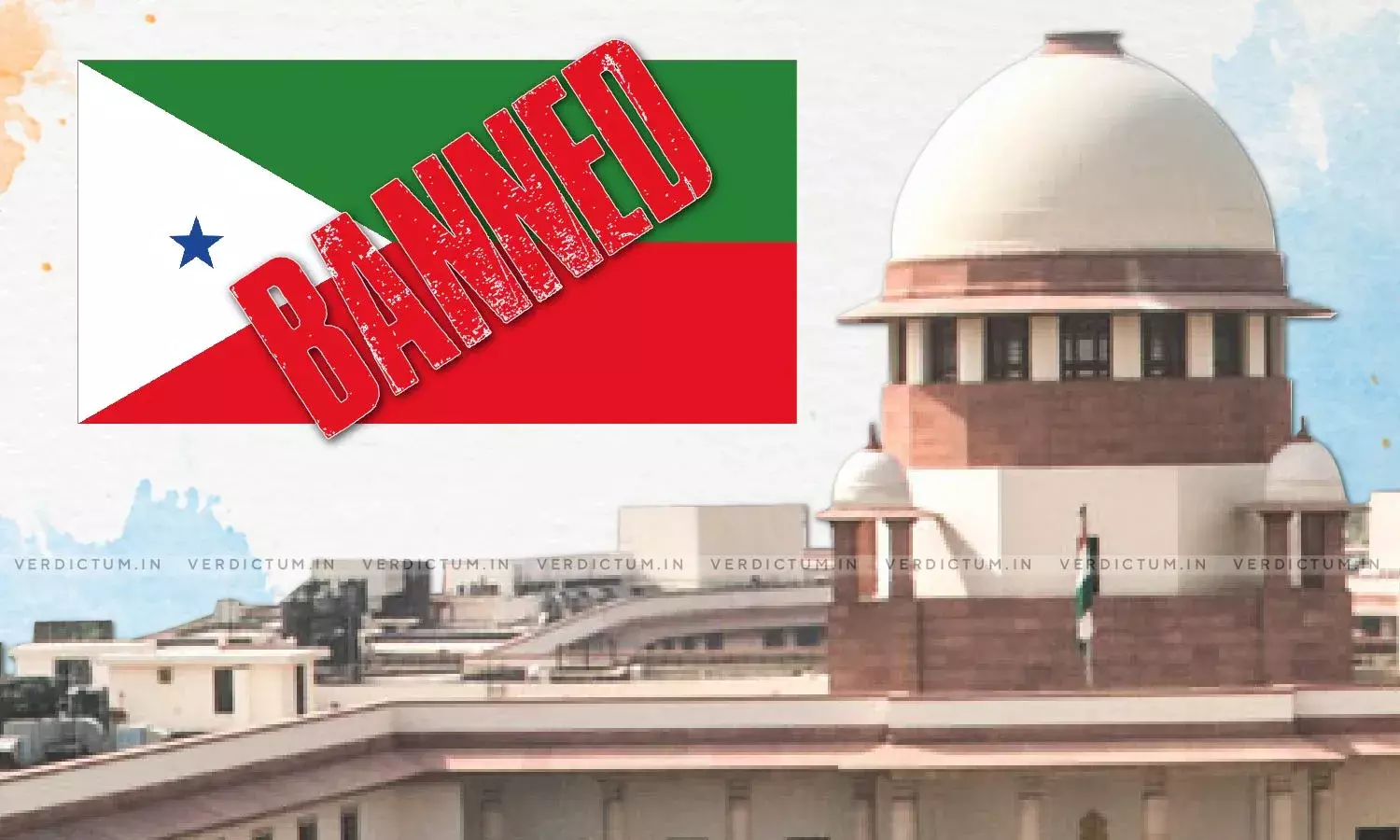Supreme Court Dismisses PFI's Plea Challenging Unlawful Association Label, Asks To Approach The High Court

The Supreme Court, today, declined to intervene in the Special Leave Petition filed by the Popular Front of India (PFI), which challenges the notification issued by the Central Government declaring the PFI and eight of its affiliate organizations as an "unlawful association" under Section 3 of the Unlawful Activities (Prevention) Act, 1967 (UAPA).
The Bench comprising Justice Aniruddha Bose and Justice Bela M. Trivedi at the outset expressed their objection to the Petitioner organization for directly approaching the Supreme Court. The Bench remarked, "Have you not approached the High Court first? Approach the High Court... Article 226 is available."
Appearing for the Petitioner, Senior Advocate Shyam Divan acknowledged the availability of a remedy before the High Court. However, he objected to the fact that similar organizations labelled as unlawful have approached the Supreme Court through Writ Petitions and Special Leave Petitions, and these matters are currently pending before different benches.
Diwan submitted, "In fact, I told them about the availability of Article 226. The only point I should mention to your lordship, and then your lordship may guide us, is that there are matters pending in this Court against the similar unlawful banning of organizations. These matters are currently under active consideration in different benches, but all in the Supreme Court. Some of these cases have been filed under Article 32, and others have been directly challenging the tribunal orders."
However, refusing to interfere, Justice Trived stated, "Better you go to the High Court". The Court ordered, "The Petitioner has approached this Court invoking our jurisdiction under article 136 of the Constitution of India directly against an order passed by the tribunal constituted under Unlawful Activities (Prevention) Act, 1967. In our opinion, the Constitutional Writ Jurisdiction ought to be the High Court, where the Petitioner should have approached."
Accordingly, the Court dismissed the Petition but granted liberty to the Petitioner organization to approach the High Court.
In its petition, the PFI has challenged the UAPA tribunal's March 21 order, which confirmed the Center's decision from September 27, 2022, to ban the organization for a five-year period. The Center banned the PFI for five years based on allegations of its connections with global terrorist organizations like ISIS and its efforts to incite communal hatred in the country.
The Gazette notification issued by the Additional Secretary of the Ministry of Home Affairs bans Rehab India Foundation (RIF), Campus Front of India (CFI), All India Imams Council (AIIC), National Confederation of Human Rights Organization (NCHRO), National Women's Front, Junior Front, Empower India Foundation and Rehab Foundation, Kerala as affiliate groups of the PFI. The ban is for a period of five years.
The notification says that the Rehab India Foundation collects funds through PFI members and some of the members of the PFI are also members of the other abovementioned groups and that they have "a 'Hub and Spoke' relationship with the PFI acting as the Hub and utilizing the mass outreach and fund raising capacity of its associates or affiliates or fronts for strengthening its capability for unlawful activities and these associates or affiliates or fronts function as 'roots and capillaries' through which the PFI is fed and strengthened".
Cause Title: Popular Front Of India v. Union Of India [Diary No.- 26236 - 2023]

